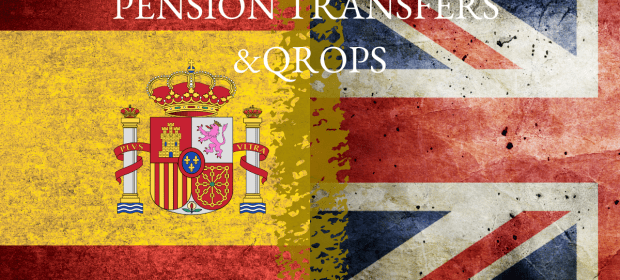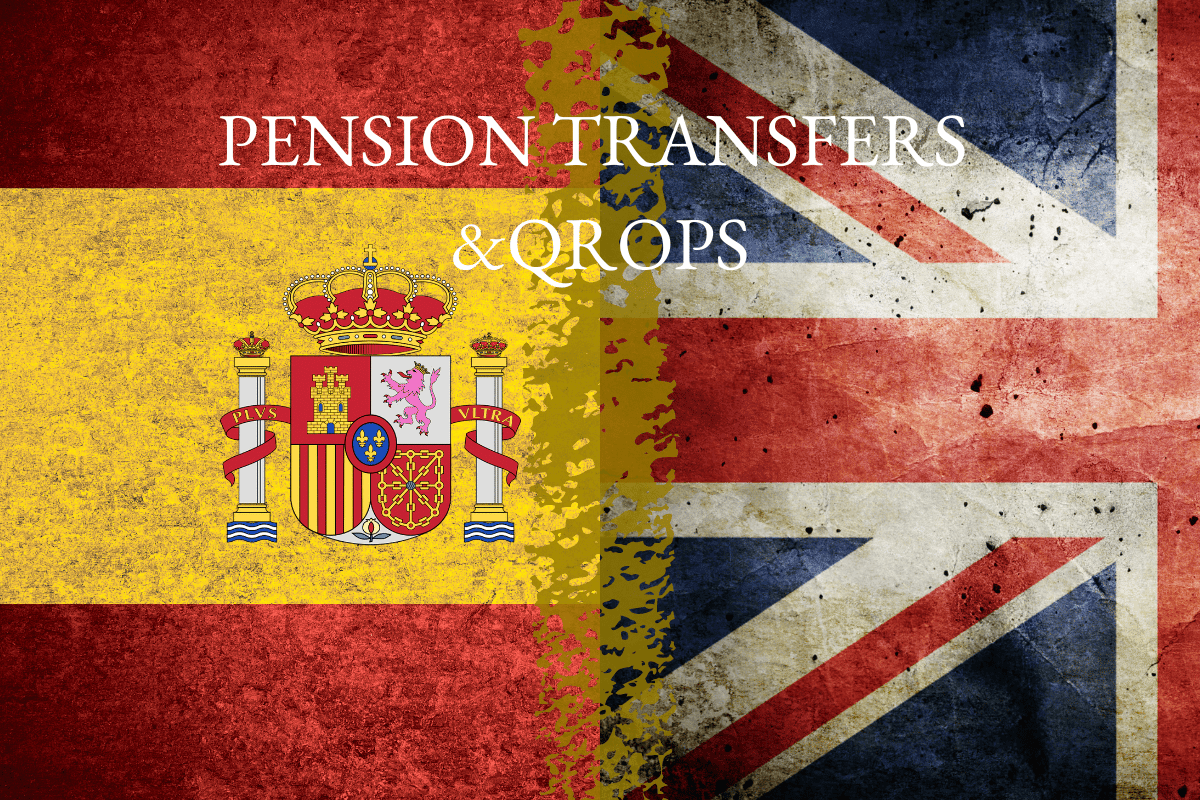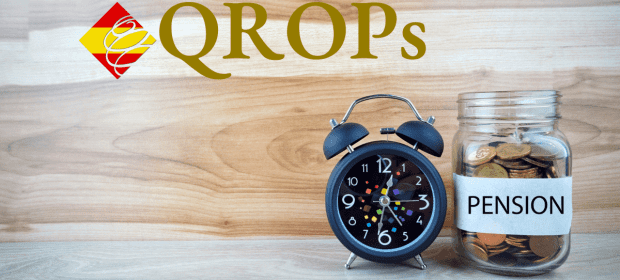Thank you Deano, glass of wine in one hand and that mellow voice. Don’t worry this older, hopefully wiser Financial Adviser is a bit like that glass of wine, it mellows. Without a doubt, there have been immense changes in both my industry and life.
Memories are made of this
By David Hattersley
This article is published on: 12th March 2024

I started in the industry in 1987,at a time of rapid change. Privatisation, deregulation, right to buy, the “Big Bang” in the City, personal pensions, PEP’s, ISA’s, etc.
Changes in other fields occurred eg. traditional Optical Practices were challenged by a retail outlet offering a greater range of inexpensive glasses. It is now a global brand company. If you can’t read this, you should have gone to ……… !!! Many non Ophthalmic opticians came to own their own franchises and prospered. I dealt with quite a few.
Technology was advancing rapidly. Remember the 1st so called mobile phones? Massive batteries- if you tried to take it on board a plane as hand baggage today a budget airline would say too heavy, and charge you for hold luggage.
My 1st lap Toshiba laptop was used to provide illustrations. The games, awesome! Ping pong and zapping those little creatures coming down from the top. Microsoft was starting to lift off. Search engines were becoming available – eg “Ask Jeeves”.
Papers were full of financial news and even ”the Sun” had a page. No br…ts on that page! There was “Spitting Image” with a fair portrayal of some sectors of the press. A former CEO of a major financial services company told me that he ignored the “daily’s”, and only read the weekly addition of the FT on Saturday. The devils in the detail, so a “fad” can be created by misinformation & lack of due diligence. An example of a “fad” was the Dotcom crash, with “mates in the pub” telling their friends how much they had made. Basic fundamentals were not considered, greed came to the fore. I advised my clients not to purchase these assets, was ignored by one client and sadly he lost money. I experienced other so called opportunities where my advice was ignored and money was lost.

It wasn’t only with individuals where mistakes were made. Less regulated mortgage lending along with Lawson’s last budget in 1998 stopped additional mortgage tax relief to each single unmarried couple. House prices continued to rise in what was already a bubble, but slowed in 1989 and began falling. Then ERM. That crash lead to negative equity and a recession,& the demise of the Major government.
Then Blair was in charge. Cool Britannia, the fall of the Soviet Union, continuing Globalisation, 9/11, and subsequent wars. The banking crisis of 2007, resulted in chaos. Relaxation of regulations, greed, lack of understanding, due diligence and negligence were major contributory factors.
Quantitative Easing was introduced 2008 -2012 leading to a reduction in interest rates. It did not prevent recessions in many parts of the world, but gradually economies began to recover.
The last 4-5 years have been challenging, Covid, war in Ukraine, Gaza, slowdown of growth in China, politics dividing countries, Brexit, looming recession in some countries. It may seem that its never ending but these things are cyclical. It doesn’t matter where the recession is, there is always someone that benefits from it. Warren Buffets quote “When everybody’s being greedy, be fearful, when everybody’s being fearful be greedy”! Apply that to the many of examples I’ve already mentioned this quote certainly rings true.
What I do is simple, nothing has changed the process. Better regulation makes it more complex and detailed, but is that a bad thing? I don’t think so. My role is to understand clients objectives, and help them navigate the complexities. Levels of risk/reward need to be considered. Annual reviews continue the process taking into account any potential changes. Dealing with an ageing population needs compassion, understanding and patience.
Looking back, nothing really changes in my chosen field, life does not follow a straight line and is often unpredictable. Investment should always be based on the long term, short term knee jerk reactions should be avoided. I still love what I do after all these years, it’s in my blood, so please feel free to contact me to arrange a no obligation meeting over coffee.
Transferring your pension to a QROP
By David Hattersley
This article is published on: 17th October 2022

A sense of deja-vu is now apparent as the UK is experiencing a similar situation compared to the 70’s. Drawing comparisons especially for those that lived through that era would be unhelpful. However a minor point worth considering were the restrictions on the flow of capital out of the UK. For those lucky enough to travel abroad then a limit of £25.00 cash per person was the restricted limit under the Exchange Control Act 1947. My wife still has her old passport with form PP/A dated 14.02.73. One of her clients of 100 years still remembers how difficult it was to bring money into Spain to buy a plot of land.
For those that already are living in Europe or plan to in the very near future under the golden visa rules, I am not suggesting a wholesale restriction of capital movement . A difference though between the 70’s and now is the growth in personal wealth, with the primary asset being property. The 2nd biggest asset and perhaps underrated was the growth of money purchase pensions after Mrs Thatcher came to power and for those in their 50’s & 60’s this could be quite considerable. The opportunity to “ distance work “ may have an impact on younger professionals and for those relocating here.
The current government is under extreme pressure, especially the need to raise tax revenue to balance the books, along with the alleged reports of threats to tear up all agreements with Europe.One politically “safe option” and unlikely to cause uproar and outrage by the general public would be to curtail or even stop transfers to a QROP for those lucky to live or move to Europe.

Why would the government do this ? The payment of a pension held in the UK could be taxed at source as are the current Civil Service Pensions, thereby retaining the long-term tax revenue stream. It would mean filing tax returns both in the UK & Spain. The pension commencement lump sum could also come under review. There certainly wouldn’t be a public outcry for those “ lucky” enough to have sizeable pension pots.
The UK Budget Bill normally has to be debated and passed into law which takes about 3 months. In 2015 negative amendments were made to the QROPs rules that took effect immediately on the day after the budget and was quietly “slipped in”. A case of “ the devils always in the detail”! After all the principle of if one can get away with it once, why not try to repeat a similar process again?
There are many advantages in transferring to a QROPs and at The Spectrum IFA Group we offer and recommend a thorough assessment and report of your individual situation by our qualified specialist at no cost to you. An additional benefit is the long-term service provided as UK based advisers can no longer provide this for residents in Spain and the individual can retain control via a local adviser. A transfer to a QROP doesn’t only apply to UK nationals but any European worker that has built up a “pension pot”. I have been heavily involved in the pensions market since 1987 and have a wealth of experience in this field so if you have any concerns or interest please contact me to arrange a no-obligation initial meeting.
e.mail : david.hattersley@spectrum-ifa.com
Telephone or Whats App : 0034 711 051 938
The challenges faced when Downsizing
By David Hattersley
This article is published on: 20th September 2022

For many of those that are considering downsizing numerous factors influence this decision. Offspring have grown up and follow their own paths, the need for a family home is surplus to requirements. The death of a partner, or their worsening ill health is also a major factor in making changes. The ageing process makes it harder to “self maintain”, therefore external contractors are required. Recent extreme weather conditions have contributed to additional maintenance requirements around the home. High demand has also reduced the availability of professional contractors and trying to find them can be frustrating and expensive.
Having made the emotional decision , to downsize does it get any easier ? Moving to a smaller property might seem easy, but one has to decide which accumulated treasured possessions and artefacts will be disposed of or left behind.
The next question is where are you going to live? Trying to predict the future is difficult, trusted close friends have died or moved away. Potential reduced mobility, death of a partner,lack of easy access to healthcare and amenities and public transport facilities must be considered .No longer can one live up the side of a mountain, in the country or away from a central urban hub when one will depend on the aforementioned facilities. Very few residential “warden assisted community retirement” homes exist in Spain, unlike the UK.

The next consideration once the property is sold, is what to do with the capital. Does it make economic sense to buy yet another albeit smaller property, or rent ? With the average life expectancy being in the mid 80’s, for those in their late 60’s does it make sense to buy ? With the cost of purchase estimated at between 13% -14% *, and subsequent disposal costs of 7% due to a future change of circumstances does it make sense to “waste” this residual capital when it could be invested to provide an income ? Bear in mind many smaller properties here still require maintenance. If it is a proprty that has a communal pool and gardens, there are annual maintenance fees and in the summer when hordes of holiday makers “invade” what was peaceful and tranquil for 10 months of the year can suddenly become stressful. Having experienced both owning and renting I understand the upside and downside of both scenarios.
Finally the last and most important element is the investment of the capital. There are a viable sensible solutions instead of Spanish banks. With rising inflation sensible capital growth and income are vital as is the relative ease that after the death of a partner the investment can be passed to the survivor without unnecessary complications. The same can be applied to leaving this to one’s heirs. It is both tax efficient and compliant and is accepted by the Spanish regulators. Finally should one eventually move back to the UK, it can be taken with you. It is essential the that your investment has been set up correctly as it is currently not treated as a capital asset when calculating the costs of living in a care home. This means that it stays intact to pass onto one’s nominated heirs. My own experience with my in-laws proved this was the case.
So if you have any concerns, doubts or interest please contact me to arrange a no-obligation initial meeting over a cup of coffee.
Transferring your pension to a QROP
By David Hattersley
This article is published on: 31st August 2022

Deja-vu, why urgent action is required to transfer your pension to a QROP
A sense of deja-vu is now apparent as the UK is experiencing a similar situation compared to the 70’s. Drawing comparisons especially for those that lived through that era would be unhelpful. However a minor point worth considering were the restrictions on the flow of capital out of the UK. For those lucky enough to travel abroad then a limit of £25.00 cash per person was the restricted limit under the Exchange Control Act 1947. My wife still has her old passport with form PP/A dated 14.02.73. One of her clients of 100 years still remembers how difficult it was to bring money into Spain to buy a plot of land.
For those that already are living in Europe or plan to in the very near future under the golden visa rules, I am not suggesting a wholesale restriction of capital movement . A difference though between the 70’s and now is the growth in personal wealth, with the primary asset being property.
The 2nd biggest asset and perhaps underrated was the growth of money purchase pensions after Mrs Thatcher came to power and for those in their 50’s & 60’s this could be quite considerable. The opportunity to “ distance work “ may have an impact on younger professionals and for those relocating here.
The current government is under extreme pressure, especially the need to raise tax revenue to balance the books, along with the alleged reports of threats to tear up all agreements with Europe.
One politically “safe option” and unlikely to cause uproar and outrage by the general public would be to curtail or even stop transfers to a QROP for those lucky to live or move to Europe.
Why would the government do this ? The payment of a pension held in the UK could be taxed at source as are the current Civil Service Pensions, thereby retaining the long-term tax revenue stream. It would mean filing tax returns both in the UK & Spain. The pension commencement lump sum could also come under review. There certainly wouldn’t be a public outcry for those “ lucky” enough to have sizeable pension pots.

The UK Budget Bill normally has to be debated and passed into law which takes about 3 months. In 2015 negative amendments were made to the QROPs rules that took effect immediately on the day after the budget and was quietly “slipped in”. A case of “ the devils always in the detail”! After all the principle of if one can get away with it once, why not try to repeat a similar process again?
There are many advantages in transferring to a QROPs and at The Spectrum IFA Group we offer and recommend a thorough assessment and report of your individual situation by our qualified specialist at no cost to you. An additional benefit is the long-term service provided as UK based advisers can no longer provide this for residents in Spain and the individual can retain control via a local adviser. A transfer to a QROP doesn’t only apply to UK nationals but any European worker that has built up a “pension pot”.I have been heavily involved in the pensions market since 1987 and have a wealth of experience in this field so if you have any concerns or interest please contact me to arrange a no-obligation initial meeting.
ESG funds and green gardening
By David Hattersley
This article is published on: 10th February 2022

I love maintaining the grounds of our home. It keeps me fit, is rewarding when a job is well done, and gets me off the computer into the fresh air.
We live on the edge of the National Park that is the Montgo, surrounded by pine trees and other natural vegetation. We decided to keep an area that many would describe as wild and unkempt as a “nature reserve”.
The joy of a variety of animals and bird life gathering at dawn and dusk at the pool as their “watering hole” has provided many an hour of entertainment. So many bird species and colours nest here, and visit us year after year with their offspring. In the summer even the occasional Parakeet/ Cockatiel fly in, Hawks circle above on the thermals looking for their prey, and Swallows “dive bomb” the pool for flying insects.
Perhaps the most amusing are the squirrels that use the balustrade surrounding the pool as their personal M25, rather than the death defying leaps from tree to tree. They drink from the deep end hanging on for dear life with their front paws in the pool, and suspended by their rear haunches.
It’s the animals’ natural habitat, and source of food. Pigeons eat the dry seed pods from the yellow Mimosa, the other birds attracted by brightly coloured berries from bushes. They drop the seeds or deposit them via “natural wastage” through their system. Bird’s beaks pollinate flowers as they move from plant to plant. Squirrels store their nuts and then forget where they left them, ie lost their nuts. All of this leads to natural germination of new plant growth.
Of course there are drawbacks, fire being our biggest fear with the latest in January this year that was only 500 metres away. A round of applause for the skill of the pilots in their helicopters and planes dispensing their water drops on steep slopes and the “ ground Fire-fighters “ that camped out overnight on the mountain slopes to ensure the fire did not restart.
Our grab bags were ready for immediate evacuation.
Like everything in life there is a balance, yin and yan. De-forestation also has other issues that impact our very lives. I ‘ll refer to this in part 2, and its quite a surprise. But we have to consider the fire risk of our natural area, man’s need vs environment. It is a compromise that needs “Forest Management “rather than total destruction. This takes time, effort, planning and thought.
On a minor basis this is no different to company investment funds that are moving to a strict code pertaining to ESG. As a company The Spectrum IFA Group continue to add new additional ESG funds to the portfolio of fund managers that are truly supportive of this vital part of investing. The most recent one is the Liontrust ESG fund and we welcome its inclusion.
As this is becoming a vital component to any individual’s portfolio, feel free to contact me as detailed below, or download our guide to responsible investing and ESG funds here

Irish Pensions Transfers | What are your options?
By David Hattersley
This article is published on: 25th January 2022

Over the years there has been an ebb or flow of people between the UK, Ireland and also the EU/EEA. There is a strong link due to the common language between the UK and Ireland, with workers moving between both countries. There is a large Irish community in the UK from those who emigrated due to the high unemployment and lack of opportunities in Ireland for many years. Two things changed that trend: joining the EU in 1973 and the subsequent “Celtic Tiger “, which reversed the trend with Ireland becoming a net destination of immigration. It also has led to a change in demographics and the advent of multi-culturalism. However, the boom collapsed, for many reasons, and Ireland fell into recession in 2008, after their banking crisis. Irish youngsters then emigrated to Australia, the UK and elsewhere, to pursue careers or a better way of life.
As the world began to recover from the banking crisis and confidence was returning, the Covid pandemic hit the world. The ensuing restrictions created job losses in the retail, leisure, tourist and airline industries. There are still concerns over the unresolved issues of Brexit and the emergence of Omicron, but despite this Ireland has managed to stage a recovery on the back of the activities of multinational companies, financial services and supported by a domestic recovery, as reported by European Commission’s autumn economic forecast in 2021.

There are many advantages to travelling – one’s perspective changes. But after moving abroad to live, work or retire you might find yourself with pensions scattered across different countries.
So when should you consider an Irish Pension Transfer? If you no longer reside in Ireland it is possible via a Malta based QROPS, provided certain criteria are met. Detailed below are some points to consider.
- You have accumulated defined contribution pension plans in both the UK and Ireland
- You have an Irish defined benefit scheme and you may be restricted by the trustees as to when benefits are taken, or their choice of investments
- You are unhappy with the choice of fund offerings or selections
- You wish to diversify the currencies of the assets
- You wish to “mix and match” different quality fund managers and their styles, with the ability to change these within the wrapper
- You may want to take retirement benefits earlier, between 50 and 60
- You need flexibility when taking pension income benefits and to be able to vary these according to your needs or change in circumstances, e.g. taking benefits after redundancy, and then gaining new employment or an alternative career
- Malta has a wide range of Double Taxation Agreements (DTA) in force whereby pension income is payable gross automatically and is assessable in the country of tax residence
A full assessment of your needs will of course be carried out to ensure that your objectives can be met, so feel free to contact me on my email below to start the process.
Inflation: food for thought
By David Hattersley
This article is published on: 30th November 2021
Governments use a variety of measures to calculate inflation figures, but in the main consider about 600 items that are in popular demand. Hand sanitizer has recently been added to the list as an essential item. But, it will also include TVs, clothing, smart phones, new gadgets etc. If one strips out something that is considered by some as non essential or has no need to be replaced, then within an individual’s budget the cost of food will take on greater significance.
Within the food chain costs are going up. Farming and breeding have been badly hit by increased production costs; electricity has gone up by 270%, tractor diesel 73%, fertilizer 48%, water by 33% and seeds by 20%. Growers have to pay more just to cultivate and pick their crops. In Galicia dairy farmers who produce 40% of Spain’s milk are being “strangled” by soaring production costs, estimated at 25% by the Union of Agrarians. Bad weather, such as the recent “Gota Fria”, can also have a negative impact on crops. The complaint from farmers is that whilst supermarket customers are paying more for their milk, the Food Chain Law has not been applied, i.e. “no link in the chain may charge less than what it costs to produce.”
Distribution is also part of the food chain. The majority of Spanish truckers are self employed, but have been unable to offset their increased costs of diesel plus the future cost of automated motorway toll roads. A three day strike has been called for 20th-22nd December.
So perhaps a perfect storm of reduced supply and increased demand will, if you excuse the pun, “add fuel” to the inflationary upward spiral. This is perhaps lessened in Spain, as it is relatively self sufficient in relation to food supply and is a major exporter. It is worse for countries that are not self sufficient and need to rely on Spain’s exports and alternative supplies from across the globe.
To many of my retired clients who remember the UK in the 80’s, inflation has again become a concern. I have been able to help them find some financial protection against this for their savings, in particular those that held surplus cash in banks in excess of an emergency fund. Each client had their own attitude to risk which does vary, hence the need for regular reviews. I have access to Spectrum’s preferred investment partners who can provide a multi asset and globally diversified tailored solution.
We do not charge fees for reviews, reports, recommendations or future service meetings. Should you wish to contact me to explore your needs further, please feel free to do so either via the web site or directly using the contact details below.
I’m moving to Spain – When should I take financial advice?
By David Hattersley
This article is published on: 17th March 2021
Brexit removed the previous rules pertaining to “Freedom of movement, goods and services within the EU”. Those who now wish to move to Spain from the UK, making it their home as retirees or working here, newer and tougher rules apply.
Distance working has added a new dynamic, in particular for those in the technology sector who see that this is as an opportunity to work and live in a nicer environment. Speaking to a qualified financial adviser who is regulated here,in Spain is sometimes an afterthought . However, talking to an adviser before you embark on the journey can help avoid some of the issues which expatriates can find themselves encountering. Financial planning is complex, whichever new country one moves to, so a brief summary can help prepare for the future “devil in the detail” elements. Forewarned is forearmed and helps avoid basic pitfalls.
It makes sense to “disinvest” all UK held assets prior to becoming Spanish Tax resident. Timing and deferral is the key to planning a strategy. Note that due to Brexit, UK advisers are no longer allowed to offer continuity of advice Spain for those that become tax resident in Spain.
There are a number of rules regarding Spanish tax residence, which are briefly detailed below. You will be deemed tax resident in Spain in any one of the following cases:
1. Number days in Spain not to exceed 183 days and may include time spent in any EU member country,
2. Centre of Economic interest i.e. source of earnings is in Spain,
3. Spouse and minor children living in Spain.
With regards to your assets, without going into too much detail, the following will apply.
UK property: Disposal once tax resident will be subject to Spanish capital gains tax, even if it was one’s primary UK residence. If retained it will be subject to reporting on Modello 720, a record listing overseas assets. A 20% increase in value will mean a new Modello 720 report. Income derived from letting the property will be subject to Spanish “investment” tax.
UK Pensions: A Pension Comencement Lump Sum is tax free in the UK, it is liable to tax in Spain. So if nearing 55 wait till you take it and then become Spanish Tax resident.
ISAs: An ISA offers tax free growth or income in the UK. They are not tax free in Spain, but there is a Spanish equivalent.
Unit Trust, Shares, Investment & Insurance Bonds, NSI bonds etc: There are some tax breaks in UK but none in Spain.
Inheritance Tax: The UK rules apply to the residual estate whereas Spain applies it to the beneficiary. There is a strong possibility of being taxed twice as estate rules & beneficiary rules are not covered by double taxation agreements.Based on “domicile” there is a different law for bequests & inheritance in Spain. Also, unlike the UK, it has a the variety of laws for each autonomous area,affecting in particular the potential impact of Spanish succession tax. It makes sense to deal with a regulated adviser who is based in or near to an autonomous area you will be living in e.g. Madrid ,Andalucia, Murcia, Valencia.
Having a “ partner “ relationship as opposed to being married, brings its financial own risks in Spain, and arrangements must be considered.
Spanish Property: Some people come to Spain with plans of using their new Spanish property to retire to now or eventually. If it is the latter, the property maybe used to produce rental income either via summer rentals or long term rentals, but in this case there will be tax considerations.
Investing an hour of two of your time before you make the move to Spain can provide peace of mind and financial comfort when planning your new adventure. I can provide “Your guide to tax in Spain” that goes into greater detail. Whether you want to send the guide or speak to me directly, please call or email me on the contacts below & I will be glad to help you. We do not charge for reviews, reports or recommendations we provide.
A Spanish regulated adviser can ensure you are financially prepared for your move, in terms of any investments, savings and taxes which can become due on both income and windfalls you may be expecting after your move.
Please note, we are not accountants or lawyers, but we do work hand in hand with these professionals, and can be the “first port of call”.
Fund managers, ethics, green issues and sustainability
By David Hattersley
This article is published on: 18th February 2021

The impact of both Brexit and the Covid 19 pandemic have given us all time to reflect on the world we live in. As consumers in the developed world, we are perhaps more aware of the impact we make on our planet. The words “Sustainable” and “Ethical” spring to mind.
So where does one stand on ethics and sustainability? As individuals, it’s very easy to say “we are Green”, but then travel 70km to stock up on our favourite brands of frozen convenience meals. Most of us, due to “lockdown”, now spend more time cooking and preparing our meals at home.
How far are major companies prepared to change too? Coca Cola has announced plans to make a paper bottle and already has a prototype that can be recycled, which was developed in the Brussels R&D centre. But, whilst that is a very applaudable, one company has gone even further.
I have to admit that there is an affection for them as I worked in one of their divisions for two years prior to a career change to Financial Services. One of the biggest global consumer companies which operates in 190 countries is Unilever. “Love or loathe it” to paraphrase Marmite, they have taken what some may consider a risky strategy. Not only do they try to ensure that the raw materials that go to make their products are as green as possible, they have taken what may be considered a leap of faith. Sustainability and ethics are not only about “green principals”. They are insisting that every part of its global chain of suppliers provide a “living wage”, and in some cases double that, by 2030. These include smallholder farmers as well major direct suppliers numbering in total 60,000. As the CEO, Alan Jope, said in a statement on the 21st Jan 2021, “The two biggest threats that the world currently faces are climate change and social inequality.”

As part of a developed area of the world we should all make a choice. Do we support the ethics of a company that is looking to redistribute wealth and act in an ethical, sustainable way, or do we just look at price rather than value? Have the events of the last year been our wake up call? Morally, rather than just looking at saving tax, or short term political gain and expediency, we should consider what the real legacy is that we leave our children and grandchildren on this planet that we share.
The same questions will be applied by our fund managers, in particular those that focus on ethics, green issues and sustainability. Are they the best choices for the future? I believe so. These specialists have far greater resources than I could ever have to research this “new world” we are entering, and are better equipped to look at the longer term than I am. I would be happy to provide a portfolio of these specialist funds to anyone who is interested, so feel to contact me on any of the points raised.
Lockdown lessons learnt?
By David Hattersley
This article is published on: 17th June 2020

Now as we enter phase 3,are we just beginning to get back to a different version of normality? We all have realised that we need to be around other human beings. Just going to a bar for a coffee with family,sitting outside, spending time talking with each other and people-watching has become a simple treasured pleasure as our world gets back on its feet.
LESSONS
Self -isolation & working from home.
An element of self discipline regarding work has had to take priority, but within limits as if we were at an office. Early research from New York has already shown the following:
a) People miss the interaction of an office environment that creates a positive energy and greater productivity, with the ability to expand upon and share ideas. Whilst Video Conferencing provides a two dimensional picture, it doesn’t pick up the nuances of a face to face physical meeting.
b) The morning rush hour can be a drag, it does provide time to set the day up with a sense of purpose. The evening journey creates a buffer to reflect on the day’s events or relax before you get home. Ensure that the family are aware of a disciplined time period whereby non work related issues have to be deferred until family time/free time. After all, working from home without the commute, will give you more family time and free time. Use it wisely, have breakfast and lunch with family, or more free time to carry out your own interests. Bucket Lists are no good if they aren’t followed through, or if you die before doing them.
c) Dress as if you are going to a physical meeting. One wouldn’t wear jeans or shorts to a meeting ! Learn to control technology and not let it control you, e.g. work e-mails should only be read during work-time. Avoid instant response, set time to consider and reflect on that response, but not in your downtime. Remember when you went on holiday and left your place of work for 2 weeks. Take time out to “Sharpen your blade”.

Environmental challenges.
The world is not ours by right.
With pollution in major urban areas falling rapidly, this a chance to re-evaluate our lives and the impact on our planet that we share with other forms of life. Living on the edge of a national protected park has given us the time to enjoy and observe the animals that co-exist with us, ranging
from the evening watering hole (drinking from the pool) to the raising of a variety of families of birds and mammals that return each year to breed, some of which we have never seen before e.g. a cockatiel. Dolphins now have begun to swim in our local harbours, wild boar are prevalent and discussions are under-way to reintroduce a mating couple of Iberian Lynx in our area. Speaking to a client in the UK, deer have appeared at the end of their garden.
As we have got used to only buy essentials, has this lead us to question consumerism? Do we really need to buy the latest gadget or fashion? Can we make do and mend? Repair and fix, rather than discard? In our own household, because we have strict recycling rules, why go to a shopping mall when we can “swap or gift”via a charity shop? We now use local facilities to support the small family businesses vs major groups e.g. the local hardware store. We now buy food that is locally sourced within Spain as much as possible, so in season food has become a key factor in our purchases.
Travel has also been bought into question. Having driven a Jeep V6 petrol engined car for many years (I never believed in diesel) I am now driving around in Skoda 1.2 petrol engine. There is a balance, a yin & yan: what needs to be addressed the social interaction vs unwarranted trips.So careful planning has to be considered. As for flying to the UK to see family is not something remotely worth thinking about, alternatives need to be considered. Travelling by car seems a more sensible approach because survival instinct kicks in. Plane/public Transport or your own personal self isolated vehicle!
I hope that in the biggest challenge that I have ever encountered throughout my career in financial services, I have met and satisfied my clients expectations of the service that I have provided in these difficult times.

But one word can sum up all the above…
BALANCED
It may seem ironic, but the fund managers we use endorse the same principals; they use their extensive collective resources and knowledge to create a number of funds and investments.
Even they are not sure of the short term future, so they are “hedging” their bets and not taking too much short term risk. Balance helps you to take advantage of opportunities, while limiting downside risk. If you would like to dsicuss how we can help improve the balance in your portfolio, please contact me for a meeting with my details outlined below.

